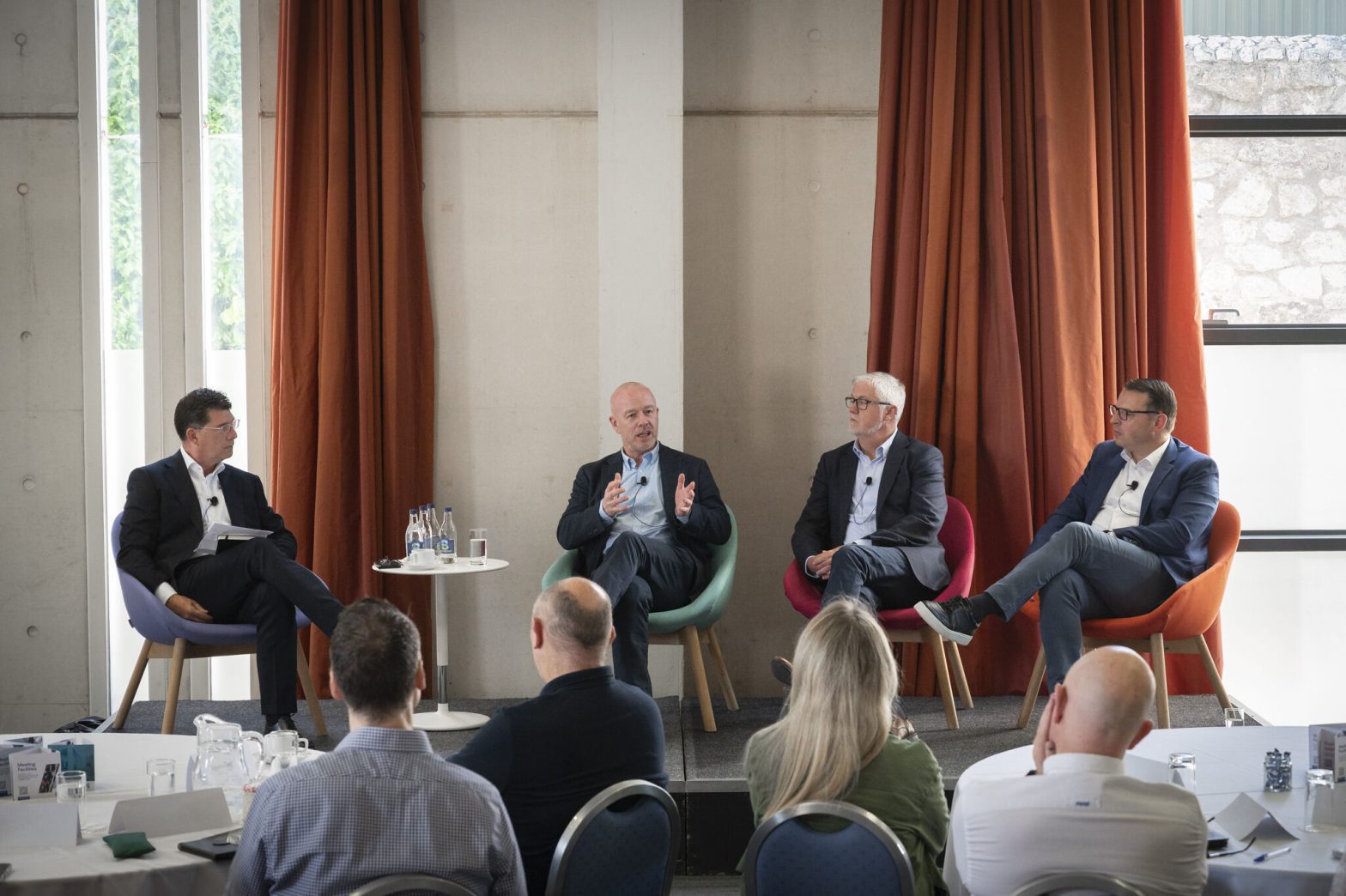Event Insights: Leading in Sustainability with Mark Mellett
By Farah Barry | 2nd March 2023
IMI was thrilled to welcome retired Vice Admiral Mark Mellett to our recent membership webinar, to deliver an insightful session on leadership in sustainability. Mark discussed 10 principles of leadership, and how these should play into the execution of your sustainability strategy, both as a leader and as an organisation.
Mark started out by talking about his childhood in the west of Ireland. Growing up in Mayo, he was always outdoors – whether it be walking, hiking, or fishing. On his adventures, he noticed how the international community was so fascinated by what we took for granted here in Ireland – the bogs, the lichen, catching trout in the river, and harvesting hazelnuts and blueberries from the forests. This is what sparked his lifelong love for nature, and commitment to sustainability.
Mark joined the Defence Forces in 1976, and gained a plethora of experience and knowledge, much of which can be applied to the current challenges organisations are facing with regards to sustainability.
Mark’s first principle is around collaboration. We should all aim to be collaborators rather than islands. At a macro level, that means that different countries will need to work together to achieve sustainability goals, but at an organisational level it’s about instilling a culture of collaboration, rather than having competing silos. The critical piece is understanding that the answers to our problems sit outside our immediate boundaries.
Next is innovation. When Mark was a child, IBM had created a computer that could hold 1MB of data. We now have access to an extraordinary level of technology, like AI, Virtual Reality and the Internet of Things. We have moved to a point where we have 180ZB of data – data drives information which underpins the creation of knowledge. In the context of sustainability, we will be able to harness technological solutions to meet goals.
The concept of diversity and inclusion is ever present. Ensuring that the organisation isn’t a monoculture is critical, and so is providing opportunities for people of different genders, races, ages and sexual orientation to thrive within an organisation.
Following on from diversity and inclusion comes gender equality. This doesn’t come without its challenges, and while Mark got to see these challenges first hand in the military, all organisations face the same thing. It’s going to take 130 years or more to have gender equality across the world. Ireland is currently in the middle, with about an 80% gender balance, but we still have a distance to go. In the international domain you can see the impact of not having equality – when you look at the gender gap and the global peace index: where gender gap is great, violence is greatest.
While it might not sound intuitive from a leadership perspective, the next principle is seizing the day. Opportunities come to pass, not to pause, and the gap to address climate change is closing rapidly. There needs to be a certain amount of risk-tolerance when it comes to seizing opportunities like this, but in order to make sure we don’t miss out, it needs to be done.
The sixth principle is a simple one – ego. To be empowered to meet the sustainability challenge head on, we as leaders need to understand the importance of being self-aware, and the value of wisdom.
It’s nothing new, but resilience is still a critical piece, whether you have a big or a small team. The health and wellbeing of our teams is of utmost importance, and we need to ensure that we’re looking after ourselves and those around us. We live in a period of inverted power, and an extraordinary amount of pressure is put on us due to social media. We need to normalise conversations about mental health, and confiding in others when you are having challenges.
Values and culture are really two sides of the same coin, and they’re the glue that holds organisations together. It’s important to put in place values that organisations can actually action and live. In older organisations especially, this is a big challenge and it’s something to be approached with great care, as it can go wrong. You need to be sensitive when you bring changes to culture – there could be vested interests and resistance to change. The solution is working in a considered manner so that you ensure the changes are lasting.
Principle number nine is purpose. We all need to have a shared purpose about sustainability, which must inform what we do personally and within our organisation, team, community. We need to make sustainability a norm rather than something we aspire to.
The final principle is the concept of leadership itself. A leader is the conductor of an orchestra. There are many different styles of leadership, and one of these won’t be applicable in all situations. You’ll need to work out which fits with each situation related to your sustainability agenda. The objective is the same for everyone, we need to lead the charge to drive from unsustainable to sustainable, and our purpose as leaders is to make that change.
—
The IMI Transformational Leadership in Sustainability programme is now enrolling for the very first intake.
—
IMI Members get access to a range of in-person and virtual events. To find out more about membership please visit this page.
—



